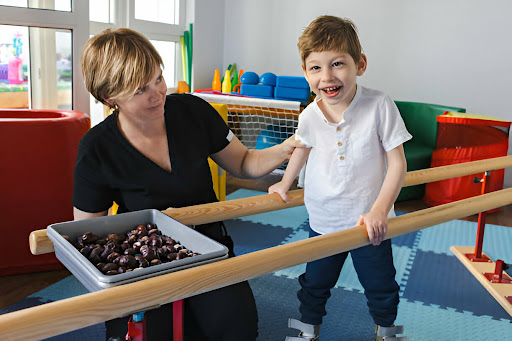NDIS 2025 Changes | Eligibility & Budget Updates

Did you know that a major change in the National Disability Insurance Scheme (NDIS) is going to happen in 2025? These changes will affect how people, service providers, and support coordinators use the system. The future changes are meant to make the scheme more efficient and long-lasting. They include new eligibility requirements, ways to manage the plan, and budget amounts. However, change brings complexity, ensuring Melbourne participants and providers consistently maintain necessary support. This blog will explain the most significant NDIS changes. It will prepare you for progress and educate you on how to adapt to change.
Why Is the NDIS Changing?
NDIS is changing because it is struggling to keep up with the demands of the general public. As expected, the rising costs have made NDIS modify its budget to maintain the programme's financial stability. But at the same time, many people had to deal with delays, uneven services, and problems making their plans work. To fix these problems, the government is strict on eligibility criteria. The main goal of these changes is to improve the system for everyone involved. A system that is clearer, faster, and better able to help disabled Australians now and in the future.
NDIS Eligibility Criteria Update 2025

The NDIS will undergo many changes in 2025, including changes to the NDIS eligibility criteria update. The government wants to improve the system so that people who need help the most can get it. Under the new rules for qualifying, applicants will need to show more detailed medical proof of how their disability has affected them over time.
- More focus will be on functional ability tests rather than just medical diagnoses.
- The process for kids younger than 7 will be changed so that early intervention support can be given more quickly.
- We may reevaluate some previously qualified conditions to see if they are still eligible for support under new rules.
Understanding all the documentation work in advance is important because these NDIS changes could impact new participants and those whose plans are under review.
The NDIS Review Process: What’s Changing?
Many NDIS members do not like the NDIS review process because they have to wait a long time, and the results of their plans are not always the same. By 2025, the review method will be more simplified and time-effective, minimising delays and making things clearer.
- A simpler application process for plan reassessments is one of the most important changes.
- Faster settlement is available for people who need to change their plans right away.
- More organised instructions on how to submit documents will make it easier to decide who is eligible.
This means that people will have a better idea of how they will get money and help, which will make them feel less stressed and unsure.
NDIS Support Coordination and Plan Management Reforms

The NDIS plan management and support coordination will undergo significant changes in 2025. The goal is to give participants more freedom and improve service performance.
Important Changes to NDIS Support Coordination:
- Clarity about what support managers are supposed to do and know about the services they provide.
- Funds for people who need a lot of help with organisation.
- More freedom to pick and switch support coordinators based on customer satisfaction with the service.
Updates on the NDIS Plan Management:
- Participants will have more control and better money management by having more self-management options.
- Adding automatic tools for monitoring budgets will help people plan their services better.
- The NDIS Quality and Safeguards Commission should closely monitor providers to ensure the provision of proper services.
With these changes, participants will have more control over their plans, and services will remain high-quality and focused on the participants.
NDIS Budget Changes and Their Impact
As a result of the NDIS budget change, funds will be distributed differently among support groups. Adjustments on how much money an individual gets to help with the services they receive are some of the important changes.
- Spending more on programmes that help people with mental health problems and starting to help them early.
- Funds committed to assistive technology and necessary changes for homes.
- Openness in funding choices to make plans for participants easy and consistent.
The budget changes aim to maximise resource use and ensure fair and effective money distribution among individuals.
NDIS Transport Funding: What Participants Should Expect
Many NDIS participants who depend on the NDIS for transport to get to their community and other areas have been worried about how to pay for transportation. People rely a lot on NDIS transport funding, but to be fair and accessible, we will instil changes to make our services fair for everyone.
- Participants who need special help with transportation will get extra funds.
- Public transportation funding should be included in the NDIS transportation budget.
- Travel aid will be given to people who need assistance while going to education-related or health-related places.
These changes are intended to give people who need transportation assistance more freedom to attend the event and make the services more inclusive.
The Role of the NDIS Quality and Safeguards Commission
In 2025, the NDIS Quality and Safeguards Commission will make rules more strict to make sure that service providers meet higher standards.
- Stronger security checks for support workers and providers are one of the main areas of attention.
- By conducting frequent checks to monitor service quality and prevent scams.
- Easily accessible ways to file complaints for people who are having service problems.
This makes sure that NDIS providers in Melbourne and all over Australia provide safe and efficient care that meets high standards.
NDIS Provider Registration: New Requirements
From 2025 on, getting an NDIS provider registration will be harder. This is to make sure that only trained and honest providers are approved. New requirements include:
- Service providers must now get higher-level training as part of the new NDIS rules.
- Background checks and compliance tracking are strictly monitored.
- Pricing and service agreements are now clearer.
These actions aim to improve participant services while reducing unethical behaviour.
Impact of NDIS Changes on Participants
The impact of NDIS changes on participants will vary depending on individual needs and circumstances. On the other hand, here are some benefits and challenges:
Benefits:
- More openness and the acceptance of review plans.
- Better support for programmes that people need.
- Higher standards for the level of care and responsibility of providers.
Challenges:
- Strict requirements for qualifying may make it harder for some candidates.
- At first, it takes longer to get used to the new rules, while other participants and companies get used to them.
- More control could mean that some participants have to keep more records and follow more rules.
Conclusion
The NDIS changes in 2025 will make a major difference in the quality of services, the clarity of funds, and the independence of participants. However, they also bring about new inclusion requirements, review processes, and compliance measures that participants need to be aware of. Check your NDIS plan and see how these changes might affect your funding so that you are aware of them and ready beforehand. Working with your NDIS support coordination team will help you maximise changes and streamline the move. If you choose a registered NDIS provider, you can be sure that you will get good support. By fully understanding these changes, NDIS participants can get the most out of their plans and get the services they need, improving their quality of life. These changes will not restrict you; they will make your experience better.